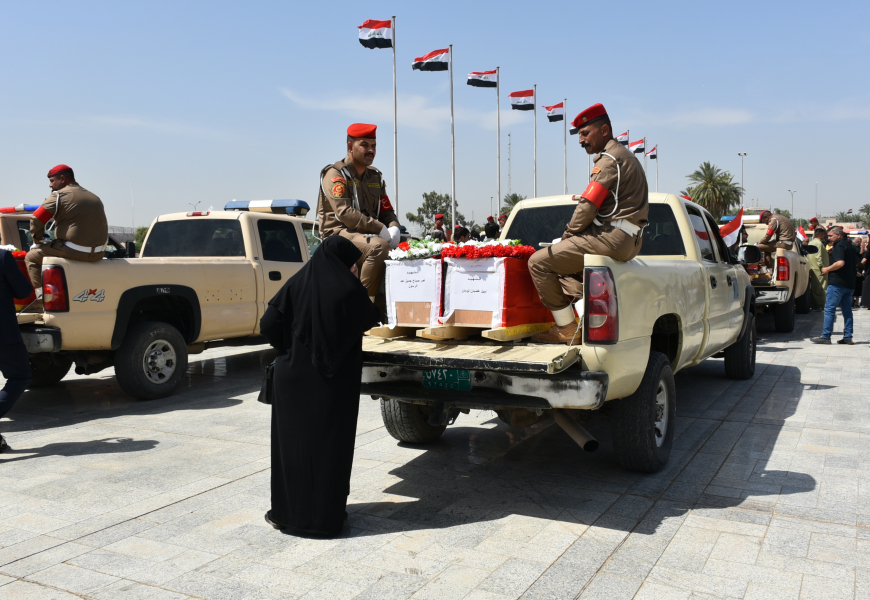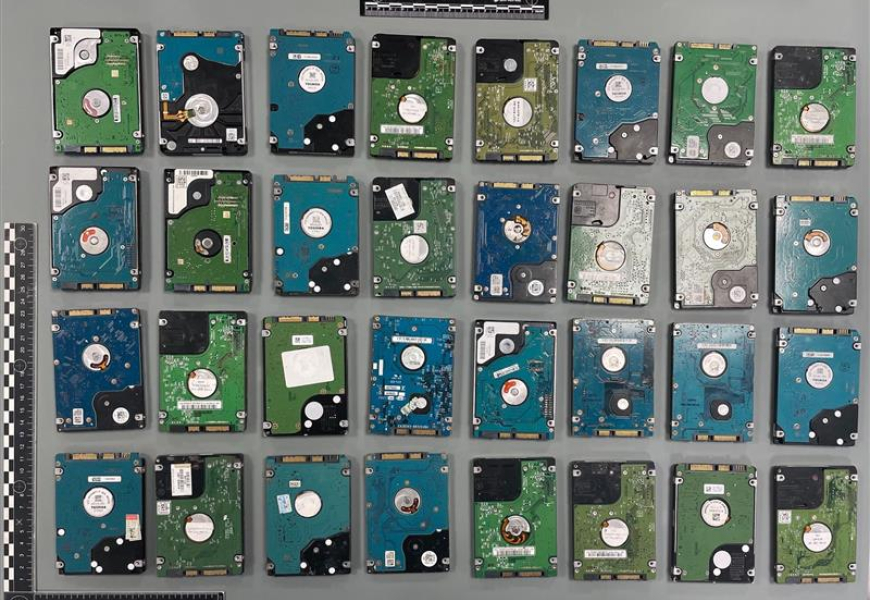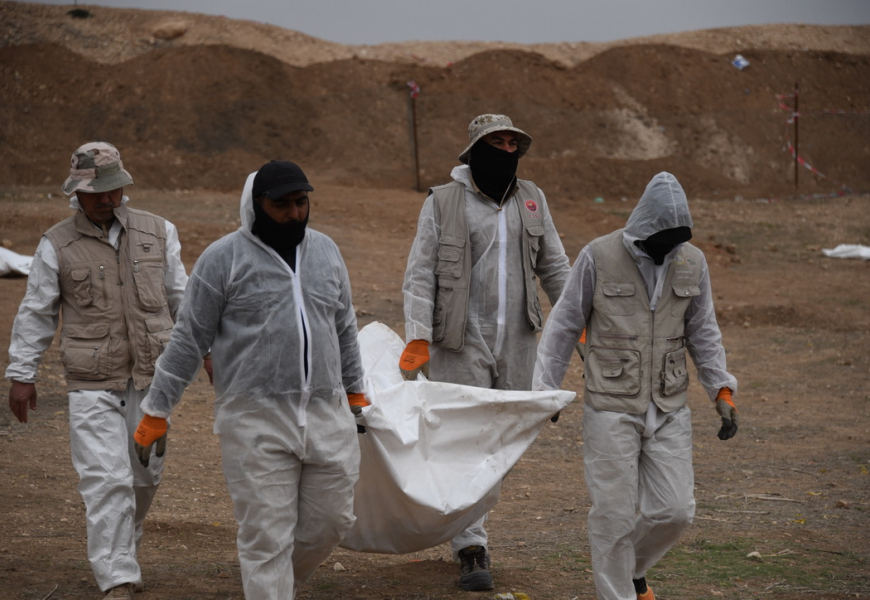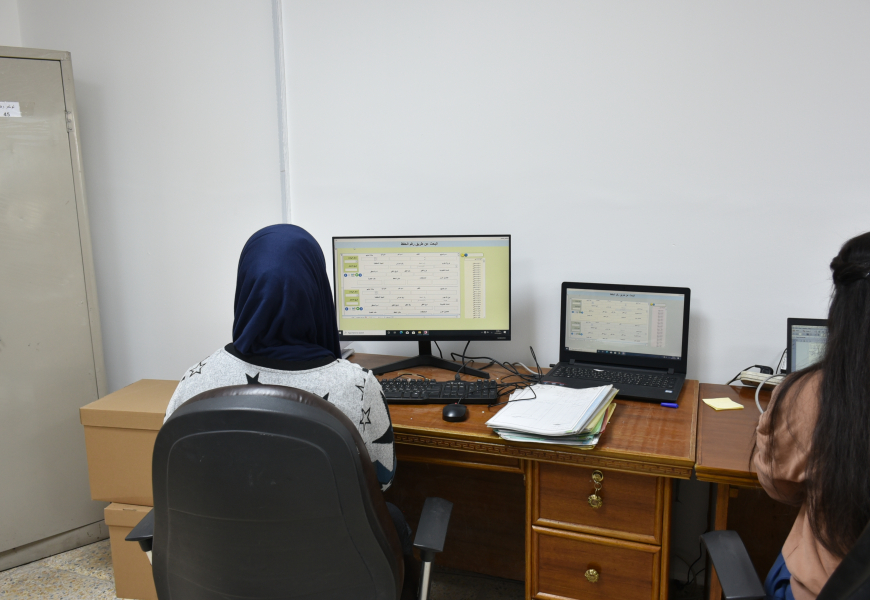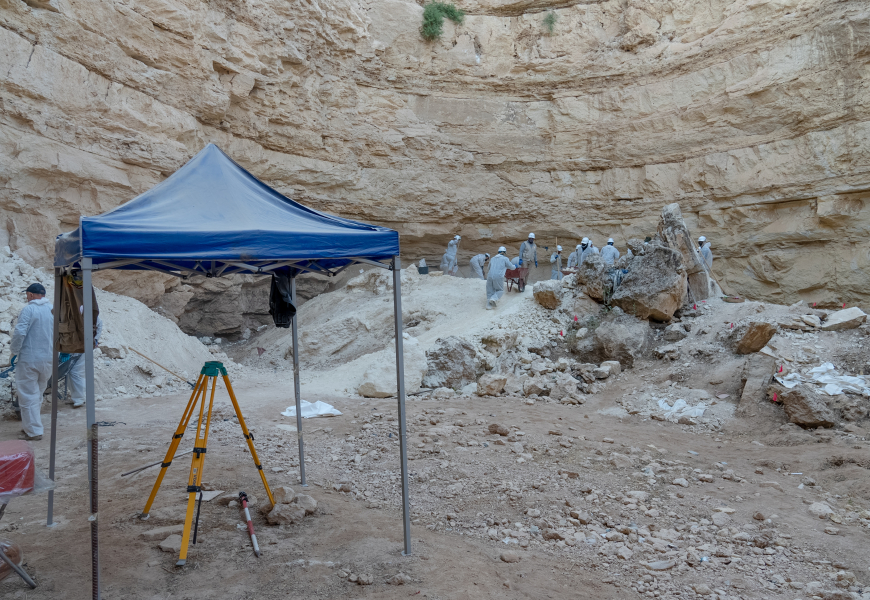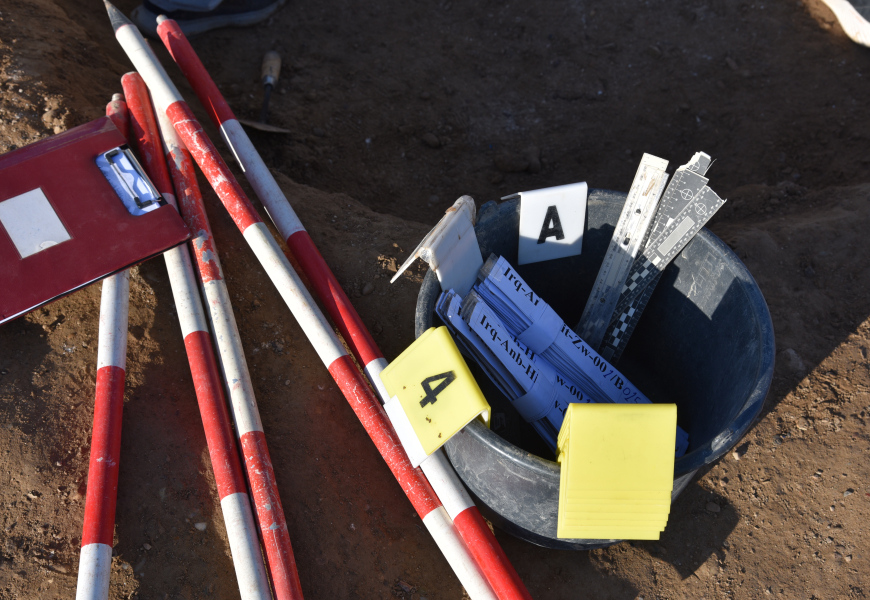Collection and Preservation of Evidence
The Investigative Team concluded its mandate on 17 September 2024 pursuant to Security Council resolution 2697 (2023), and is no longer operational. This website captures its work and overall achievements. It is not updated.
A diverse range of evidence collection activities were undertaken by the Team throughout the mandate to support its investigative work. More targeted activities, usually meant to yield evidence relevant to specific investigations, included the collection of witness interviews; the collection of physical evidence from mass graves excavations and the identification of victim remains; requests for information to Iraqi and international partners; and open-source intelligence. Other activities deployed a more broad-based approach, such as the digitization and archiving of ISIL (Da’esh)-related paper records, or data acquisition from seized ISIL (Da’esh) digital devices, whereby evidence was collected, processed and queried by the Team to identify what may be relevant to specific investigations. Many of these activities were undertaken alongside the Iraqi authorities within the framework of capacity-building and training in line with paragraph 39 of the Terms of Reference (S/2018/118, Annex).
To help manage what was collected, the Investigative Team developed a comprehensive, accessible and user-friendly evidence management system that investigators, lawyers and analysts on the Team utilized in the course of their work, notably to develop case assessments and analytical reports; and to provide support to third States. This system ensured the collection and preservation of evidence in accordance with international standards and chain of custody, while constantly evolving over time to accommodate the demands placed on it by the investigative process. Technological innovation and partnerships further enabled the Team to glean insight and drawing meaningful conclusions. The best measurement of the total size of its evidence holdings was by data size, which reached fifty-two (52) terabytes (TBs) prior to the conclusion of the mandate. This remains equivalent to millions of pieces of discrete information, notably documents and multimedia (photos, videos, audio). These holdings were archived at the United Nations Secretariat on 28 August 2024, both in its original, unaltered state as created and stored digitally to protect its use in judicial proceedings and as organized, categorized and tagged by the Team to make it more easily searchable.
Mass Grave Excavations and Victim Identification
In partnership with the Mass Graves Directorate (MGD) and the Medico-Legal Directorate (MLD), the Investigative Team provided technical expertise in support of sixty-eight (68) mass grave excavations related to ISIL (Da’esh) crimes, in line with a joint strategy that considered the investigative priorities of the Team. Forensic and physical evidence from these sites were collected and stored by MGD/MLD in line with international standards. Support by the Team extended to the provision of approximately $2.4 million USD in equipment and training to enhance evidence collection, including digital surveying and crime scene reconstruction; security arrangements for the excavation sites; facilities for the storage of biological material; and victim identification processes. One of the final and most complex sites excavated together was Bir Alou Antar, near Tel Afar, resulting in the recovery of 158 bodies and 39 body parts.
Identified victims from these excavations, notably from sites in and around Sinjar and Mosul, were returned to grieving communities and families through various ceremonies organized by the Government of Iraq. The Team played an active role in this process, including at the pre-burial stage – the delicate and essential preparation of the remains for burial, and their transfer from a forensic repository to assigned coffins – and through the provision of logistical support for the burial itself, such as the procurement of funerary paraphernalia. In some cases, outreach events, organized by the Government of Iraq and supported by the Team, ensured the views of families and community leaders were placed at the center of the planning process. Clinical psychologists from the Team were deployed during these ceremonies to provide effective psychological and emotional support. One of the final return of remains that took place during the mandate of UNITAD was in January 2024, consisting of forty-one (41) Yazidi victims.
Digitization, Archiving and Digital Forensics
Efforts to systematically preserve documentary evidence linked to ISIL (Da’esh), notably that which was already collected by the Iraqi authorities, led to the digitization of more than twenty (20) million pages and the creation of state-of-the-art archiving rooms at three Iraqi criminal courts. More than a hundred local contractors; a dozen computer servers; numerous heavy-duty scanners; hundreds of laptops; thousands of archiving shelves; and hundreds of thousands of acid-free folders and boxes were deployed to achieve this result, such as in Mosul. In addition, the Team shared software tailored to the specifications of the Iraqi judiciary, providing it with the technical support needed for centralizing and managing these archived and digitized records. The Team also supported Iraqi non-governmental organizations to systematically preserve their documentary evidence through the delivery of relevant workshops and equipment.
Collaboration with specialized Iraqi authorities resulted in the acquisition of data from a significant number of seized ISIL (Da’esh) mobile telephones and other digital storage devices, providing access to previously inaccessible, yet potentially valuable, information. Digital forensic laboratories were established by the Team at four Iraqi criminal courts and the Counter-Terrorism Service (CTS), facilitated by the donation of equipment and software licenses. This enabled the capacity of Iraqi personnel trained by the Team to acquire, manage and verify digital evidence, including through the forensic retrieval from online sources utilizing advanced open-source intelligence techniques. These efforts helped to support the objective of the Iraqi judiciary with regard to completing a full forensic analysis of ISIL (Da’esh) and its organizational structure, chain of command and geographical presence.


